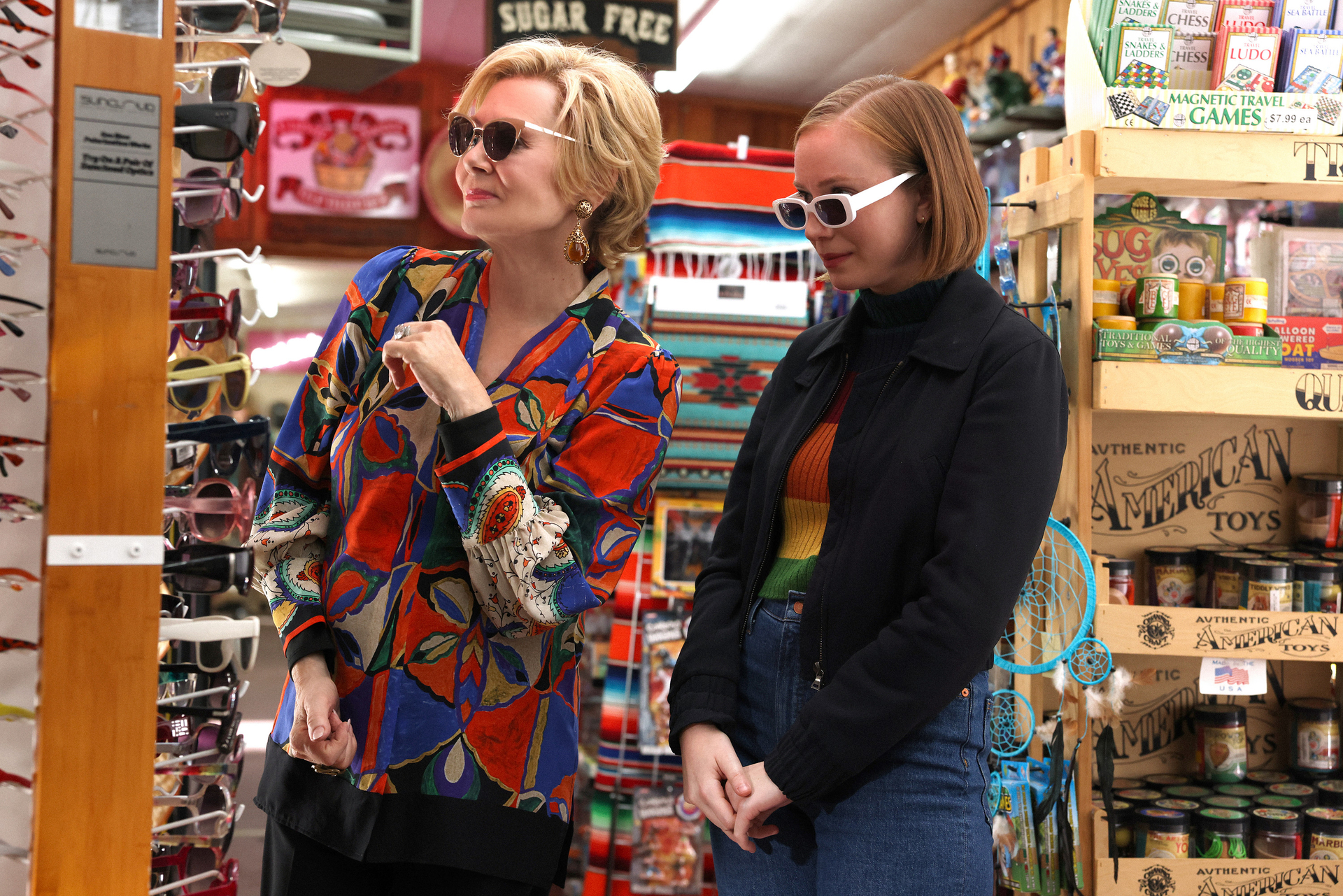‘Hacks’ returns, but its confident rhythm does not
The show’s heart and message are hard to find in season two, even as Hannah Einbinder and Jean Smart’s chemistry sizzles.

Ava and Deborah — and Deborah’s corgis — arrive in Las Vegas. Photo by HBOMax
Hannah Einbinder is a firecracker — and not just because she’s a redhead. Bursting onto the scene with HBO’s “Hacks” last year, she was immediately nominated for an Emmy and a Golden Globe for her first major foray into acting. The snappy, multigenerational comedy pitted Einbinder’s millennial, washed-up Ava against Jean Smart who played an aging standup comic named Deborah Vance; the dynamic between the two was zingy even as the show plumbed more complex depths of alcoholism, sexism and troubled family relationships.
Back for season two, the show seems to have developed a better understanding of Einbinder’s strengths as an actor, leaning into her awkward physicality and the bisexuality she shares with her character. Unfortunately, it simultaneously seems to have lost sight of its own strengths. “Hacks” still lands sharp one-liners, but the second season leans on the successes of its predecessor instead of further developing its characters and plot.
We pick up where we left off in season one, with little to remind us of the stakes — or the literal facts — of the big cliffhanger that the previous season ended with. After an explosive fight with Deborah, thinking her career was over, Ava drunkenly sent a tell-all email to a TV production company intent on making a show about Deborah; in it, Ava spilled the comedian’s flaws and revealed her most embarrassing moments. As the season closed, Deborah — not yet knowing about the betrayal — decided to go on tour and invited Ava along.
The new season opens with Ava terrified Deborah will find out about the email and, presumably, the splashy biopic it will generate. (Helen Mirren is slated to play Deborah, we learn.) Ava is desperately trying to put out that particular fire, while also repenting for her self-destructive tendencies — in an attempt to reform, she’s trying to give up drugs, drinking and Twitter.
This means an inversion of the previous season — Ava, who we met as an entitled and frustrated millennial, constantly snapping back at Deborah’s boomer ways, is now an apologetic brownnoser. Deborah, who was set in her ways, full of herself and often cruel, is out of her comfortable and staid Las Vegas life, suddenly willing to be self-critical and try new things, bombing at every performance as she works out her new material. (She’s still often cruel, however.)
At its best, despite its occasionally absurd pretexts, the show feels real, thanks to its recognizable and deftly sketched characters. Ava and Deborah’s dynamic is like that of a Jewish mother who is constantly nagging and critical of her child, the child rebelling but desperate for approval. (Ava even slips and calls Deborah “mom” at one point.) Their banter and bickering is witty and cutting yet still suffused with love, which allows the show to take on big issues such as feminism and insecurities about family, love and success without getting bogged down.
When Deborah, in season one, showed up for Ava, supporting her after her father’s death — a moment of real pain — she also made sure to remind her that crying causes wrinkles. In the new season, there are fewer of these moments; Ava’s mother and Deborah’s appear only in one episode each, at least in the six episodes released to critics, meaning the complicated family dynamics that the show excels at are given little space. And Deborah and Ava don’t have the same rhythm to their dynamic, thanks to Ava’s new apologetic demeanor and Deborah’s change in routine.
Speaking of the show’s charming cast of side characters, including Ava’s manager (Paul Downs) and his annoying assistant (Megan Stalter), they aren’t along for the tour. This means that, delightful as they are, their storylines pull attention away from Smart and Einbinder, whose performances are still the heart of the show.

But as the season progresses, “Hacks” finds its footing, making for more moments that balance bickering with heart. At one point, Deborah buys Ava sunglasses, both insulting her face shape at the same time as she compliments how well the new shades suit her. Later, the older woman buys Ava a formal, expensive wool dress — which Ava hates and Deborah crows over. Both are moves straight out of my own grandmother’s playbook, and showcase the show’s ability to, at its best, cut right to the heart of the most complicated relationships.
The second season also gives Einbinder more space to expand, particularly in an episode in which she awkwardly explores flirtation with the women on board a lesbian cruise.
As the season proceeds, it picks up momentum, finding its comedic voice again in much the same way that Deborah does on her tour. It still lacks the tight theme and message of the show’s first season, which was a comedy starring women about convincing a woman in comedy to make a show about women in comedy. But though the goal of the new season is less clear, hopefully the final episodes will rediscover the show’s purpose and heart.
























